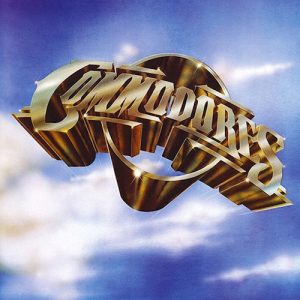 Grammy Award winning funk, soul band The Commodores—whose hit singles include Easy and Brick House—recently won a trademark infringement lawsuit against its ex-bandmate and founding member Thomas McClary, who left the band in 1984. The right to use The Commodores name and trademarks belongs to a company run by founding members William King and Walter Orange, a Florida appellate court has ruled.
Grammy Award winning funk, soul band The Commodores—whose hit singles include Easy and Brick House—recently won a trademark infringement lawsuit against its ex-bandmate and founding member Thomas McClary, who left the band in 1984. The right to use The Commodores name and trademarks belongs to a company run by founding members William King and Walter Orange, a Florida appellate court has ruled.
Originally, in 1978, when the band’s six original members formed a partnership, they agreed that if any of them died or quit, most of the partners retained the right to use the name The Commodores, according to Billboard. Their 1979 deal with Motown Records said that band members could perform with other groups, but “in no event” could they use The Commodores name. When Lionel Richie left the band in 1982, another agreement was signed and it said that “no Leaving Member, nor heirs of any member have or will have the right to make any individual use of the Name.” Eventually only King and Orange remained as original members still with the group and they transferred their common-law rights in the trademark to Commodores Entertainment Corporation, (CEC), which registered four trademarks with the U.S. Patent and Trademark Office in 2001.
Back in 2014, the band sued McClary for false advertisement and trademark infringement after finding that his use of the band’s name in marketing efforts for his solo career. Then in 2016, a district court permanently barred McClary from using the band’s trademarks after ruling the Commodores have sole ownership of the marks. McClary appealed and last week, a circuit panel affirmed the district court’s ruling. “When McClary left the band, he left behind his common-law rights to the marks,” wrote U.S. Circuit Judge Stanley Marcus. “Those rights remained with CEC.”
Dean A. Kent, The Commodores’ lead attorney throughout the case and shareholder in the Commercial Litigation practice and Lindsay Patrick Lopez, from Trenam Law sat down with IPWatchdog for an exclusive interview to discuss the details of the case as well as its big picture impact on intellectual property in the entertainment industry.
“Thomas McClary can make fair use of the marks. The Eleventh Circuit declined to identify every use that constitutes fair use,” explained Kent and Lopez. “What is clear is that he cannot use the name ‘The Commodores, featuring Thomas McClary.’ He has been performing as Thomas McClary, founder of the Commodores, and we haven’t objected to it.”
Today, there are some key IP protection strategies for bands and musicians. According to Kent and Lopez, it is really important for bands and musicians to get attorneys involved early to properly document ownership and use of the band’s name and any other intellectual property. The Eleventh Circuit’s opinion focuses on the multiple agreements between the band members that governed the use of the name, including the fact that the name remained with the band and departing members did not have rights to the name.
So, what constitutes trademark/copyright infringement for any former band members?
“The Eleventh Circuit has now clarified that, in general, departing members leave the name with the band, especially in joint ventures when the name was acquired jointly,” they explained. “The name remains with the band members who maintain control over the character and quality of the band.”
When it comes to suing for suspected trademark or copyright infringement, entertainers should take action to protect their trademarks (including band names) as soon as they learn of any potential infringement, according to Kent and Lopez. This includes sending out cease and desist letters and, if necessary, even filing suit to protect the marks.
They said, “Otherwise, a court may hold that the claims are barred by laches or acquiescence. Trademark owners have a duty to police their marks, so it is a good idea to set up some system to monitor for potential use of trademarks, such as setting up Google Alerts for the marks.”
These days, the issue of joint ownership of a musical group’s trademarks, especially its name, is a somewhat common occurrence. There are a lot of reported decisions from around the country that address similar issues with musical groups, including cases regarding the group names for the Beach Boys, Boston, Steppenwolf, the Platters, Expose, and Deep Purple.
This ruling has some major implications beyond the Eleventh Circuit. In fact, per Kent and Lopez, it makes the 11th Circuit’s determination on joint ownership of a group name consistent with the 9th Circuit’s decision in Robi v. Reed, finding when a member leaves a group, the mark remains with the original group. Further, the opinion clarifies that the 11th Circuit’s test for joint ownership of a group name not acquired through original appropriation use was inapplicable to identify the quality and characteristics for which the group is known by the public and who controls the quality or characteristics.
They added, “The ruling also has wider trademark implications with regard to the extraterritorial reach and enforcement of trademark injunctions as well as what is considered abandonment of a trademark.”

![[IPWatchdog Logo]](https://ipwatchdog.com/wp-content/themes/IPWatchdog%20-%202023/assets/images/temp/logo-small@2x.png)

![[Advertisement]](https://ipwatchdog.com/wp-content/uploads/2024/04/Patent-Litigation-Masters-2024-sidebar-early-bird-ends-Apr-21-last-chance-700x500-1.jpg)

![[Advertisement]](https://ipwatchdog.com/wp-content/uploads/2021/12/WEBINAR-336-x-280-px.png)
![[Advertisement]](https://ipwatchdog.com/wp-content/uploads/2021/12/2021-Patent-Practice-on-Demand-recorded-Feb-2021-336-x-280.jpg)
![[Advertisement]](https://ipwatchdog.com/wp-content/uploads/2021/12/Ad-4-The-Invent-Patent-System™.png)







Join the Discussion
No comments yet.